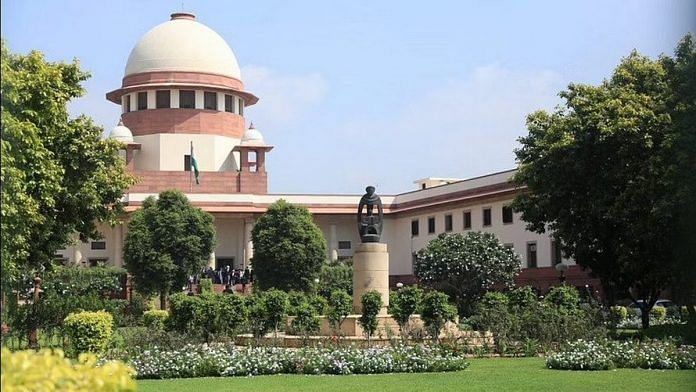While hearing cases involving two religious groups, the Supreme Court of India has a unique opportunity on its hand—to check the country’s law-making procedure as well as ascertain how courts should proceed when faced with the issues involving ‘faith’. Instead of limiting itself to settling the current cases of conflict—petitions against Karnataka’s hijab ban and the Places of Worship Act in the Gyanvapi Masjid case—the Supreme Court can address both cases as issues of public importance that would have direct impact on society as well as the country’s democracy.
The Supreme Court should refrain from adjudicating whether a belief is correct or not unless that practice poses a threat to civil society. As Justice Indu Malhotra stated in her minority judgment in the Sabarimala case, even if religious beliefs and practices are not accepted as rational by all, there is no reason to deny them constitutional protection.
In the hijab case, individual freedom and rights protected under Article 25 of the Constitution are pitted against the disciplinary system of academic institutions, which is an administrative function of any institute. On the other hand, the challenge to the Places of Worship Act raises a broader question of the law-making process in India and the lack of research on its impact before that law is brought into force.
But before adjudicating on conflicting rights, the Supreme Court would be required to settle a basic issue regarding faith, that is, whether there should exist a criteria to determine if something is ‘essential’ to any religion and whether Indian courts should enter the domain of faith and define it in certain exceptional situations.
Also read: Govt a ‘mute witness’ to hate speech problem, says SC, suggests Vishaka-like code for TV debates
Faith matters
In the hijab case, the Supreme Court should not limit itself to determining whether wearing hijab is an essential religious practice in Islam but bring clarity on student rights as well. Some of the questions it can address include: what are the rights available to students in an educational institution and what is the permissible limit to impose restrictions on such rights? Could wearing hijab or any religious sign be accepted as freedom to practice religion and should this freedom be available to students in an educational institution that has a prescribed uniform? Is an academic institution a place for everyone to live the same way and avoid potential scenarios that can create differences among students or is it a place to learn about diversity?
Similarly, the Gyanvapi case raises concerns about the faith of Hindus in one of the places of worship. The Supreme Court will be adjudicating on the applicability of the Places of Worship Act in this case.
This case provides a good platform to test the law-making procedure in India. The Supreme Court should consider issuing directions to the legislative on the importance of effective public consultancy before bringing any law, specially a law that could potentially take away some rights or create conflicting rights.
Every religion has some spiritual doctrine that may not be proved with ‘evidence’. It is only the followers’ belief in them that can be considered as acceptable ‘proof’. This is what the Supreme Court should adhere to—whether that faith or belief has existed in continuity or not. The court should refrain from adjudicating on the ‘correctness’ of the faith, provided it doesn’t interfere with others’ rights. The Evidence Act does not demand proof of what is “impossible”; it is enough to prove a fact as “probable” and therefore the correctness of faith cannot be put on test although its existence can be tested.
India’s judiciary would be better off not to interfere with humans’ relation with their ‘maker’ and how that relationship is expressed, provided it doesn’t affect peace in society. Hindus worship fire, air and many sacred rivers which may not be deities in the traditional sense and yet Hindu believe in their power of divinity, which has been upheld in a number of judgments by the Supreme Court. While deciding on the matters of faith, the court must remain conscious of the fact that while the society has an unquestionable faith in the judiciary, it also follows its religions with a similar belief. It is the judiciary’s responsibility to ensure that the society’s faith on both remains.
The author is Advocate-on-Record in the Supreme Court of India, and former assistant professor, National Law School of India University (NLSIU), Bangalore. She tweets @Swarupama. Views are personal.
(Edited by Prashant)



